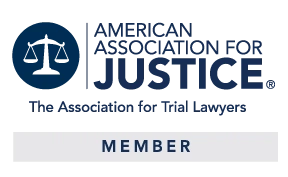Traumatic brain injuries have the power to tear a person’s life apart. Because the brain is central to everything we do—walking, talking, and cooking, to name just a few everyday tasks—any injury can be catastrophic. For these reasons, trying to handle your traumatic brain injury claim on your own will likely prove very difficult and could seriously impair your chances of receiving compensation.
Contact us today. Our traumatic brain injury lawyer has navigated many personal injury claims on behalf of accident victims who suffered traumatic brain injury. The key to these cases is preparation and full knowledge of personal injury law in Illinois.
How Traumatic Brain Injuries (TBIs) Disrupt Life
The most serious TBIs often leave a person in a coma, but even mild or moderate TBIs can severely impair a person’s ability to:
- Speak
- Write
- Grasp objects
- Stand upright
- Sleep normally
- Remember what they did in the morning
A brain injury lawsuit can be extremely stressful when someone cannot even bathe themselves, sleep on a regular schedule, or is still adjusting to their lives and trying to recover. Hiring an experienced traumatic brain injury lawyer is a good idea so that you or your loved one can focus on their recovery.
Further, many TBI victims need extensive brain injury rehabilitation. This rehabilitation will address problems with speech, mobility, and behavior. Some TBI victims need to relearn how to do simple tasks, like getting undressed or cooking a meal. Brain injury rehabilitation is expensive and often frustrating.
Our Brain Injury Lawyer Can Help Navigate the Claims Process
Michael J. Lichner understands all the moving pieces of the claims process:
- Documentation of injuries. A client can receive compensation for medical treatment and pain and suffering, but we need to fully document the injuries and their impact on your daily life. For example, we can gather all medical records as well as testimony from friends and family who have seen first-hand how the TBI has changed you.
- Reconstruction of the accident. Most TBI victims suffer injuries in motor vehicle collisions, falls, or sporting accidents. We need to reconstruct what happened to pinpoint who is to blame for the accident.
- Making a demand for compensation. Once we fully understand our client’s damages, Michael J. Lichner can demand compensation from the defendant. This demand typically kicks off the traumatic brain injury claim.
- Negotiating back and forth with the defendant. Negotiating a personal injury settlement is a little like negotiating the price of a used car. Each side starts at a different point and moves slowly toward a point in the middle. At least, that’s how it’s supposed to work in theory, but some defendants dig in and refuse to budge.
- Filing a brain injury lawsuit. Any lawsuit must be filed within the statute of limitations period, which is two years in most situations. If you don’t have it filed in time, then you probably can’t sue the defendant in the future. They can avoid paying even a dime to a seriously injured person.
- Supporting families. TBIs impact more than the survivor of an accident. Other family members also struggle, most prominently a spouse and children. We can support families by helping them find therapy to talk about their struggles. Some family members could also qualify to bring a loss of consortium claim for the disruption in their relationship with the accident victim.
When searching for a Will County personal injury lawyer, look for someone with the right experience. We have navigated the traumatic brain injury claim process and know how to come out on the other side with fair settlements for our clients.
Our Advantage
Serious TBIs present unique problems to victims and lawyers. According to the Centers for Disease Control, these injuries are so disruptive that many people struggle with chronic health problems for years:
- 57% still had disabilities from a moderate or severe TBI five years after the accident.
- 33% need at-home help with daily tasks, such as cleaning or getting dressed.
- 12% live in a nursing home where they are being cared for.
With minor injuries, a person heals before they begin negotiating a settlement. However, the effects of a TBI are lingering, and many people cannot ever return to normal, even with grueling brain injury rehabilitation.
We excel at fully valuing a claim, including the future expected expenses, like ongoing medical care or loss of earning capacity. Someone with residual disabilities may not be able to return to their previous job, and they might not work at all. We can seek financial compensation for reasonably expected future losses, including loss of earning capacity, ongoing medical care, and future pain and suffering. A less experienced lawyer might not know to request compensation for future damages of this sort.
Helping You Avoid Mistakes Along the Way
Some of the major mistakes that can undermine your claim include:
- Grabbing the first settlement offer. This is a major mistake. The insurance company, on the other side, might make a very low initial offer. Our job as your legal team is to negotiate to increase the amount offered.
- Accepting even partial blame for an accident. Illinois has adopted a contributory negligence law, 735 ILCS 5/2-1116. If a person is more than 50% at fault, they won’t receive a dime from the defendant. Someone with less culpability—50% or less—will see their compensation reduced.
- Delaying your brain injury claim. This is another key error to avoid. The longer you wait, the more evidence will disappear, and the harder it is to hold the defendant accountable. There is also a statutory deadline for filing a lawsuit, which, if you miss it, will cut off your right to sue.
Speak with a Traumatic Brain Injury Lawyer
Protecting the rights of accident victims is central to Michael J. Lichner’s legal practice. If you or a loved one was injured, you are not alone. Our firm will explain your legal rights and how our firm will protect your right to sue an at-fault defendant for a serious brain injury. Contact us today.












